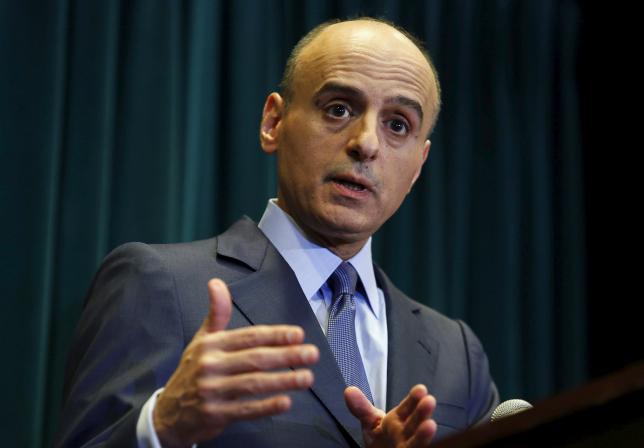Wednesday 29 April 2015 - 16:00
Story Code : 162763
Saudi foreign minister is Washington insider, confidant of king
A well-known figure in Washington government circles and on U.S. television, Adel al-Jubeir becomes the first non-royal in the job, succeeding Saud al-Faisal, who served for four decades and has been appointed a special envoy of King Salman.
Jubeir, 53, is not only a prominent public face of Saudi diplomacy, but also an insider in Riyadh.
As ambassador to Washington, he translated for former King Abdullah in meetings with U.S. President Barack Obama and shuttled back and forth to the kingdom regularly to brief the king in person.
So important are Jubeir's presentational skills to a conservative dynasty not always at ease with public messaging, that it was he who announced the launch of an air campaign by a Saudi-led coalition against Iranian-allied Houthi militia forces in Yemen last month.
He couched the initiative in terms of checking Iranian influence in a country that Riyadh considers its backyard.
"We see ... Iran playing a large role in supporting the Houthis," Jubeir told reporters at an embassy briefing.
Iran denies giving military backing to the Houthis, but Riyadh's unprecedented action in assembling a coalition to bomb them shows how seriously it takes what it sees the threat from Iran, and how much more assertive its foreign policy has grown.
For the kingdom's Al Saud dynasty, locked for the past decade in a regional tussle with Iran's revolutionary theocratic rulers, the prospect of Tehran gaining a nuclear bomb is a nightmare scenario and Iran's negotiations for an end to its long-running nuclear dispute with world powers are a major concern.
Tehran denies Western accusations it is seeking a nuclear weapon and the world powers negotiating an agreement with it say such a deal would ensure it could not develop one.
ADVISER TO ROYALS
In a March 26 interview with CNN, Jubeir said: "Everybody wants a peaceful solution to Iran�s nuclear program but it has to be a serious and solid agreement that is verifiable."
"We�re also just as concerned about the interference by Iran in the affairs of other countries in the region, whether it�s Iraq, Syria, Lebanon, Yemen, and other parts."
Iran says its nuclear program is for peaceful purposes such as power generation and denies meddling in the affairs of countries of the region.
An earlier moment of prominence for Jubeir came in 2011 when the United States accused two Iranians of plotting to hire a hit man to kill him with a bomb planted in a restaurant. Iran denied any part in the alleged plot.
The then Iranian President Mahmoud Ahmadinejad said the reported plot was fabricated by Washington to cause a rift between Tehran and Saudi Arabia.
But in 2013 an Iranian-born used car salesman from Texas was sentenced to 25 years in prison after admitting participating in a plot with an Iranian military unit to murder Jubeir.
Jubeir was appointed an adviser to the royal court in 2005 and named ambassador to Washington in 2007, when he succeeded Prince Turki al-Faisal, a former Saudi intelligence chief.
A few years earlier, Jubeir was designated by the kingdom to lead a public effort to dissociate the royal family from the Islamist militancy of al Qaeda after the Sept. 11 attacks in the United States.
Fifteen of the 19 militants who carried out attacks in 2001 were Saudis.
Fluent in Arabic, English and German, Jubeir gained a bachelor�s degree in political science and economics from the University of North Texas in 1982 and a master�s in international relations from Georgetown in 1984.
By Reuters
# Tags











